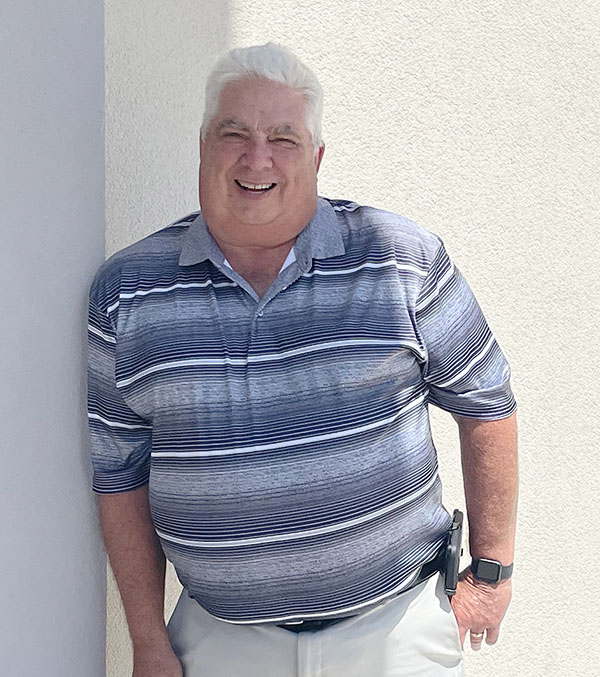
You never know who is going to help save your life. Take Dave Hogge for example.
“I changed my life insurance five years ago,” he said. At the time Dave was 57 years old. “My insurance agent called me and said, ‘You need to go to the doctor now. Your PSA number is off the charts.’”
PSA stands for Prostate-Specific Antigen, a protein produced by the prostate gland. A PSA test is a simple test that measures the amount of PSA in a man's blood. An elevated PSA level can indicate prostate cancer. Early prostate cancer often has no symptoms. But a higher-than-normal PSA level can also indicate non-cancerous conditions such as prostate enlargement or inflammation.
Dave worked with his urologist to monitor his PSA for five years. In spring of this year, Dave’s PSA level rose dramatically and his urologist ordered a biopsy. Dave received the biopsy report through the patient portal on a Saturday.
“So, what did I do? I read it,” Dave exclaimed. The biopsy showed early stage prostate cancer. “Then I got online and started researching,” he continued. “Wrong thing to do.”
Dave’s wife of 25 years, Martha, was not home at the time.
“By the time she gets home, I am completely freaked out that I am going to die within the next 24 hours,” Dave said.
Martha, a breast cancer survivor, calmed down her husband.
“Once I wrapped my brain around it, I never had a doubt about the cure,” Dave said.” I was just not looking forward to the trip needed to make it happen.”
The “guides” made the trip easy
Fortunately for Dave, his urologist referred him to Dr. Rob Johnson, board certified radiation oncologist and medical director of the Blessing Cancer Center. Dave also had a friend who is a prostate cancer survivor and highly recommended Dr. Johnson and the Blessing Cancer Center.
“I felt very comfortable with him,” Dave said.
His treatment options were surgery to remove his prostate, with the possibility of radiation therapy needed after surgery to treat any remaining cancer cells. Or, he could keep his prostate, undergo 23 radiation therapy treatments and then brachytherapy. Brachytherapy involves implanting medical “seeds” in the prostate – about the size of grains of rice – that give off low-dose radiation for months after external radiation therapy ends to help kill any cancer cells that may have survived.
For a number of reasons, including the permanency of prostate removal, its possible life-altering side-effects and a longer recovery time, Dave chose brachytherapy.
His radiation treatments were complete and the brachytherapy seeds implanted by mid-August. The seeds will continue to treat any cancer cells in Dave’s prostate with low dose radiation for several months.
“Dr. Johnson was great and the radiation therapy staff is fantastic,” he said. “Dr. Johnson really coached me. I asked him about side effects, what I have to look forward to and not look forward to. He was very honest and upfront.”
Dave also appreciated that his treatments were scheduled to accommodate his needs, and in addition to the skill and compassion with which his care was delivered, the staff knew how to handle his unique sense of humor. Dave describes himself as “ornery” and someone who loves to “kid around.”
“They could give it back twice as bad as I gave it to them,” Dave said with a smile on his face. “They made what could have been an unpleasant situation extremely bearable.”
“If I didn’t know better, I would not know I have anything going on or had anything done to me.”
Advice for other men who might have to take this trip
“When I run into guys my age, I tell them – if you have not done it yet, go get your PSA checked,” Dave shares. “Prostate cancer can kill you if you leave it alone. But it doesn’t have to get to that point.”
Because early prostate cancer often has no symptoms, Blessing Health System providers recommend that men over age 50 have an annual screening.
For more information on prostate cancer screening, symptoms and treatment, go to blessinghealth.org/prostate.
